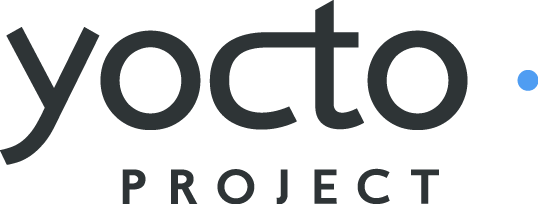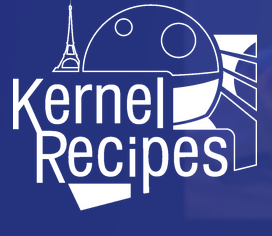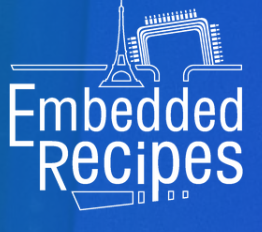Buildroot is an easy-to-use and popular embedded Linux build system, used by many as an alternative to Yocto/OpenEmbedded. Bootlin has expertise in both build systems, and has in particular been a long time contributor to the Buildroot project. Bootlin CEO’s Thomas Petazzoni is one of the co-maintainers of the project, to which he has contributed over 5000 patches.
From July 23 to July 27, four members of the Buildroot community gathered in the sunny south of France for a 5-day long hackathon on Buildroot: Yann Morin, Romain Naour from Smile, Arnout Vandecappelle from Mind and Thomas Petazzoni from Bootlin.
The main goal of this hackathon was to reduce the backlog of patches accumulated in the project’s patchwork, the tool used in the Buildroot community to record all contributed patches and make sure all of them are handled: reviewed, accepted, or potentially rejected.
When we started the hackathon, the backlog of patches cumulated to over 410 patches, and the hackathon allowed to reduce the backlog to 150-160 patches, especially taking care of all patches contributed before the beginning of 2022. In total, over 400 patches were merged during the hackathon in the Buildroot Git repository, which obviously is more than the reduction of the backlog of patches. This is mainly due to additional patches contributed during the hackathon itself (the community has been very active at submitting new patches!) and due to the review process triggering additional ideas or rework that required more patches.
Here is a summary of the main highlights that were merged during this hackathon:
- New package for ntpsec, a “a secure, hardened, and improved implementation of Network Time Protocol”
- Some cleanup of the genimage configuration files to use shortcuts for common GPT partition GUIDs
- Test cases added for the get-developers script
- Addition of several new defconfigs for multiple RISC-V 64-bit noMMU platforms: Sipeed MAIX-Bit, Sipeed MAIXDUINO, Sipeed MAIX-Dock, Sipeed MAIX-Go and Canaan KD233, based on Canaan K210 SoC.
- Migration of the
.py to .pyc byte-compilation to use the built-in Python infrastructure instead of a custom script.
- Addition of support for version 12 of the GCC compiler. This means that GCC 11 is now the default in Buildroot, and support for GCC 9 has been removed.
- Many new Python packages added: python-lark, python-typeguard, python-mypy-extensions, python-typing-inspect, python-rfc3987, python-ruamel-yaml, python-pyrsistent, python-pylibfdt, python-maturin
- Rust has been bumped to 1.62.0
- New package for mender-connect, a daemon responsible for handling bidirectional (websocket) communication with the Mender server
- Some fixes to the glslsandbox-player package
- New package for OpenSC, a set of libraries and utilities to work with smart cards.
- New package for hyperfine, a benchmark tool written in Rust. It evaluates execution time of a command passed in arguments and make a relative comparison if multiple arguments are used at the same time.
- New package for hawktracer, a highly portable, low-overhead, configurable profiling tool built in Amazon Video for getting performance metrics from low-end devices.
- New package for vis-network, a JS library to display dynamic, automatically organised, customizable network views
- New package for Avocado, an automated testing suite containing tests for various subsystems.
- New package for freeradius-server, an open source server which implements a protocol for remote user Authorization, Authentication and Accounting.
- New package for volk, a Vector-Optimized Library of Kernels. It is a library that contains kernels of hand-written SIMD code for different mathematical operations.
- A rework of the LTO handling: LTO support is now always enabled in GCC, and the new option
BR2_ENABLE_LTO allows to request LTO to be used by packages that support it.
- New package for the Qt 6 library, separate from the current Qt 5 package. For now, the Qt 6 package is very minimal: it only packages qt6base, and only the core of Qt, not even the GUI support is enabled. As part of this, the double-conversion and libb2 packages were added.
- Support for configurable page size for ARM64 was added. In addition to the default 4 KB, 64 KB pages are supported. This includes some test cases that allow to validate the 64 KB ARM64 page size support in Qemu.
- New package for clpeak, a tool that profiles OpenCL devices to find their peak capacities, together with its dependency OpenCL-CLHPP, the C++ bindings for OpenCL
- A rework of several top-level menuconfig options: the “enable MMU” option is now part of the Target architecture menu, the Toolchain menu is now before the Build options menu, which allows the choice of the C library to be done before the choice of static vs. shared libraries. This allows the choice of static library to be made unavailable when glibc is selected, fixing a number of invalid configurations.
- New package for GDAL, a translator library for raster and vector geospatial data formats.
- New package for libutp, a uTorrent Transport Protocol library
- New package for dust, an alternative written in Rust of the command “du”.
- The C-SKY CPU architecture support was removed, as it was no longer maintained, and barely used.
- New package for gitlab-runner, the open source project that is used to run your jobs and send the results back to GitLab
- New package for dbus-broker, which is an alternative implementation of the D-Bus daemon, by the systemd community. It is integrated in Buildroot so that either classic D-Bus or dbus-broker can be used as the D-Bus daemon implementation.
- New package for nerdctl, a Docker-compatible CLI for containerd, controlling runc.
- A rework of how the udev hwdb is handled, to be consistent between systemd and eudev, and to remove useless hwdb source files from the target, as the hwdb is compiled at build time.
- And at least 137 packages have seen their version bumped
Several other topics were looked at and discussed, but did not necessarily lead to patches already integrated. One such topic is the investigation of several issues with elf2flt, the tool used on noMMU architectures to produce binaries in the FLAT format, from an ELF binary. Another topic is the merge of the SciPy package, for which the review and testing is well advanced.
Overall, it was a very productive hackathon, and besides the massive work done on Buildroot from 9 AM to (at least) midnight each day, the participants also enjoyed lots of side discussions, embedded Linux related or not. We look forward to the next in-person gathering of the Buildroot community, on September 17/18 in Dublin, right after the Embedded Linux Conference Europe.
 Next week, almost the entire Bootlin team will be at the Embedded Linux Conference Europe in Dublin, see our previous blog post on this topic. We will give four talks at this event, on a variety of Linux kernel and embedded Linux topics.
Next week, almost the entire Bootlin team will be at the Embedded Linux Conference Europe in Dublin, see our previous blog post on this topic. We will give four talks at this event, on a variety of Linux kernel and embedded Linux topics.


 Tomorrow, on May 18, the third edition of
Tomorrow, on May 18, the third edition of 
